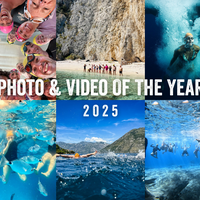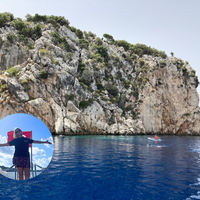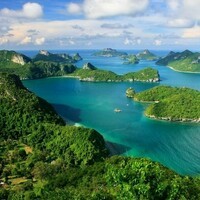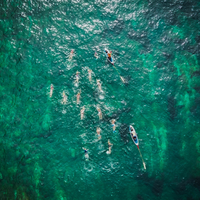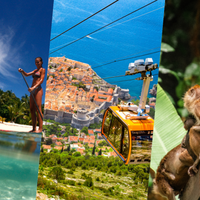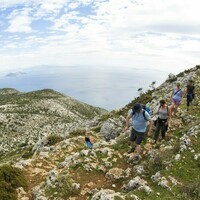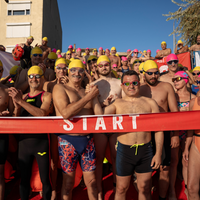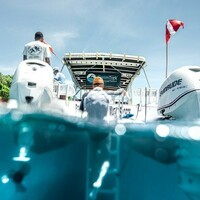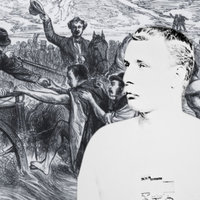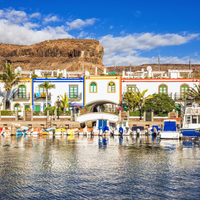For the third interview in our 'SwimTrekkers' series, we spoke to the unstoppable ultra-marathon swimmer, Sarah Thomas...
This was our third interview in this series and we were thrilled to chat with an inspiring swimmer who has completed some of the world's longest swims, Sarah Thomas.
In 2017, Sarah set the current world record for the longest continuous swim (unassisted and without a wetsuit) in current-neutral conditions - a total distance of 104.6 miles over 67 hours in Lake Champlain. After completing cancer treatments, Sarah also became the first swimmer to complete a four-way crossing of the English Channel in 54 hours and 10 minutes, as well as a two-way crossing of the North Channel in 21 hours and 46 minutes. Just think of all the jellyfish in those chilly waters!
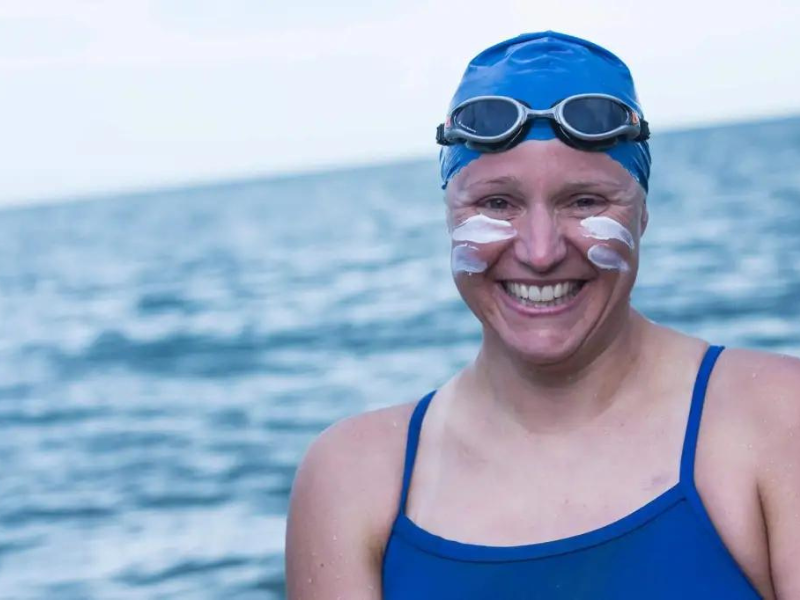
From her home in Colorado, Sarah told us about the experience of spending multiple days in open water and then being brought back to life by a handful of peanut M&Ms. We hope you enjoy the very humble wisdom she has to share on feats that truly defy our expectations of what humans should be able to endure.
‘What is your earliest memory of swimming in open water? ’
Sarah: 'No joke, I've been swimming in lakes my entire life, so from infancy I was probably in open water, probably starting around the age of 7 was when I joined a summer league swim team. I started wanting to race my siblings and my cousins and swim as far out into the lake as my parents would let me, which was not nearly far enough in my opinion, you know? I was trying to get the life jacket off, so I don't know, I've always been in the water. My grandparents had like a little, tiny cabin on a lake in Oklahoma, and so that's where I was most ambitious in my swimming escapades at a pretty young age.'
‘I've always been in the water. My grandparents had a tiny cabin on a lake in Oklahoma, and so that's where I was most ambitious...’
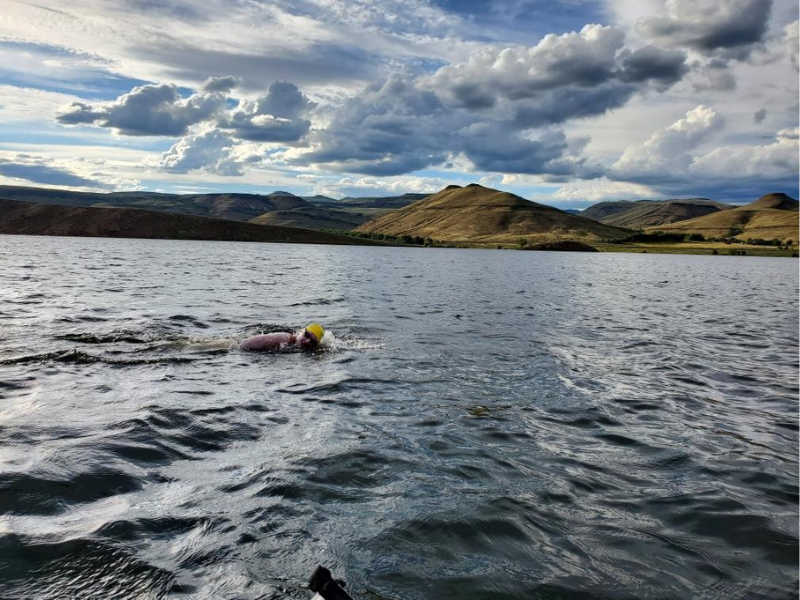
‘You became the first person to swim across the English Channel four times without stopping. Some say the Channel is the Everest for swimming, so that equates to climbing Everest four times in one go. What was your highest moment during that incredible swim and what was your lowest moment?’
Sarah: 'I will say probably the lowest moment of that swim was the halfway point. So, I had already swum from England, from England to France and then I was back in England, and I was pretty sick, it was the middle of the night, and I just was not into it. I was like, "I've been in the English Channel for 24 hours now, like that's plenty long." I'm vomiting. I don't need to be here anymore, and it really took quite a lot of encouragement from my boat crew to get me through probably about a solid six hours of some pretty serious whining and whinging about how I wasn't that tough. I was ready to get out and I was cold. I was being a little kiddie.'
'Probably one of the highest moments was when I did make the triple and we kind of pushed off again and I was like, no one's ever done this before. This is amazing. So, that was a really special moment to know that I was the first person who even tried a four-way. No matter what happened after that moment, at least I was on my way back and doing something that had never even been tried before.'
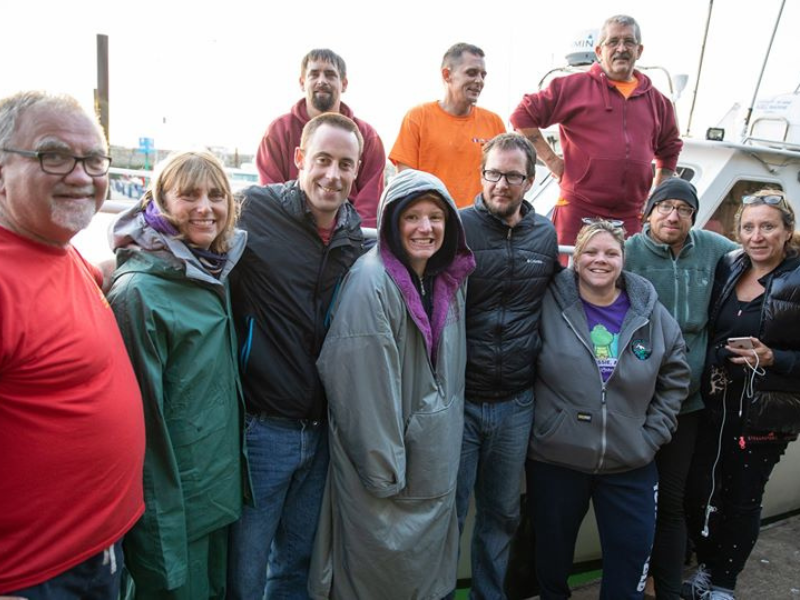
'I went into it pretty pumped up. My boat captain, Eddie, had told me if you make the turn and you head back to England, I'll float you back to England like a log, so I went into it, like, feeling pretty strong. I was just really encouraged that the weather was holding out, I'd been kind of averaging about 12 hours a lap. I headed off back to England like full of optimism and hope, and we got to the 48-hour mark, and I realized, like, we're not as close as I'm supposed to be right now. I thought this one would be between, like, 48 to 50 hours, 54, I think, and so the back half of lap number four was pretty wild, and the current pushed us pretty far off course.'
‘The closer we got, the more densely populated the jellyfish became...’
'There were a couple moments when they told me we don't know if you're going to break through the current. So, I had to do a couple of hours of power to get through. It was kind of stressful at the end. Definitely lucky in the jellyfish realm. The first lap over, there was tons, like, everywhere, right off the coast of France. The closer we got, the more densely populated the jellyfish became. When I came back around for lap number three, they were not there, so I don't know where they went in the course of 24 hours. I wasn't complaining.'
'I hit one right in my face. It hit the top of my head, and bounced down my nose and my chin, so it was great.'
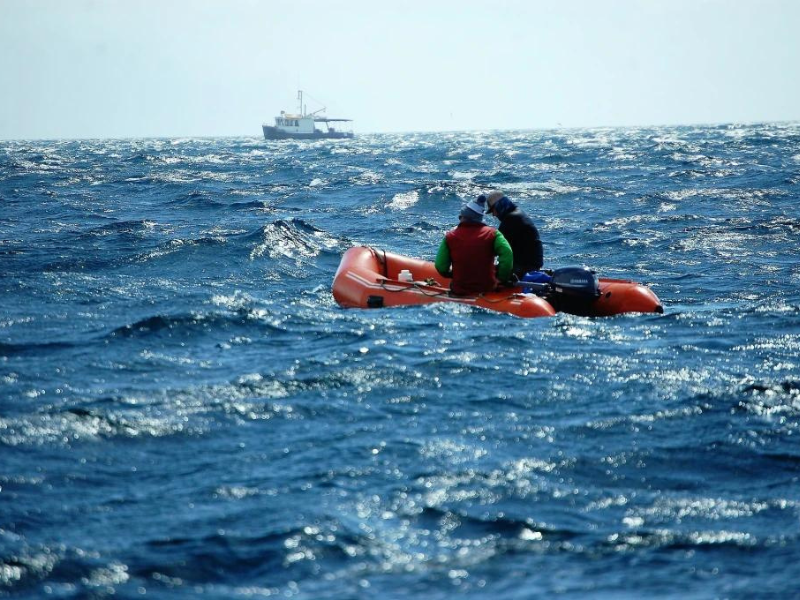
‘You started in the early hours on Sunday, and then it took 54 hours. How did it feel to climb out at the very end?’
Sarah: "I think, truly, people ask that a lot, and it's a really a kind of weird answer. I was just dazed. I didn't exactly know where I was because the current had pushed me around so far. I just literally had put my head down and was swimming as hard as I possibly could for the last hour or so. I hadn't really seen any landmarks, so all I could see was the boat and I wasn't looking at anything else. I just remember crawling out thinking, like: "Am I actually here? Is it actually done?"
_"Someone stuffed some peanut M&Ms in my hand, and I was like, all right, I must be done if I can have all these peanut M&Ms.
‘...I must be done if I can have all these peanut M&Ms.’
‘What's the sleep deprivation like at that point? Because even just 54 hours without sleep must be crazy for your mind...'
Sarah: "Sure, it's the third time that I had done something that long. So, I kind of knew what to expect. I will say I didn't ever truly feel sleepy on that swim. We do mix a little bit of caffeine, not a ton, but a little bit of caffeine into my feeds once I get past about 30 hours. That usually is just enough to keep me awake enough. It's definitely not ideal. I don't love doing it, but, you know, the alternative is going to sleep in the ocean and drowning. So, you know, you have some motivation to stay awake."
"I will say we got home after we finished at 8 in the morning, or early in the morning. I don't remember the precise time, but we finished pretty early in the morning. When I got home my mom and my husband helped me take a bath, because I was nasty. I took a solid nap until about 2 or 3 in the afternoon. Then I was kind of awake, and just went to bed at my normal time."
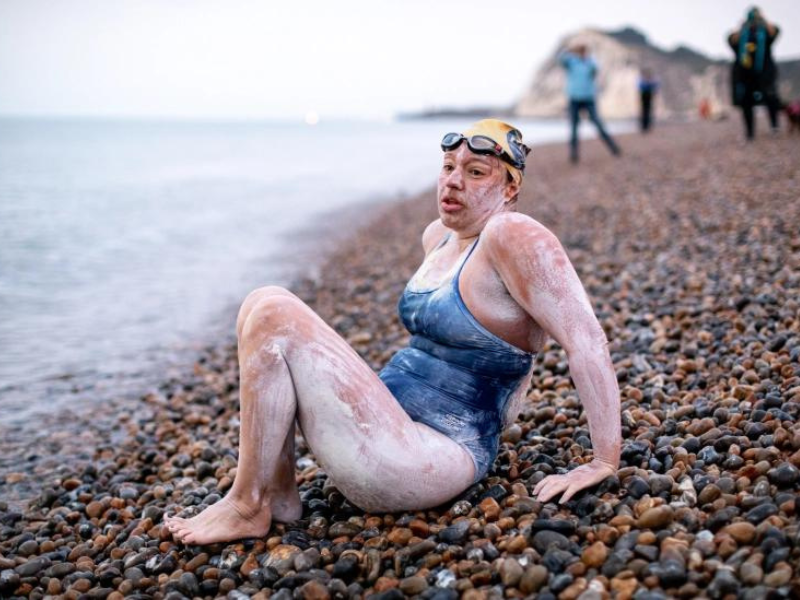
‘Before that, you held the world record for the longest continuous swim, covering 104.6 miles, 67 hours in Lake Champlain in 2017. What do you use as motivation, kind of, when you're in the worst of these endurance swims, when you might wish to be anywhere else but in the water? Do you have a kind of mantra, or what kind of comes to mind?'
Sarah: "I don't know that I have a mantra. You know, I think about a lot of things, because it's really easy to be like: "This is hard, and I'm tired, and I'm cold. I'd really like to be back on the boat now, thanks." You think about all of the hours of training. All the people who had to give up their vacation time to come on an adventure with you. There's just so many contributing factors that it's like: "Am I fine? Yeah, I'm fine." You kind of check yourself over, like: "Okay, I'm kind of being a baby right now. Nothing's bothering me. I'm not hurting. I'm not injured. I'm tired, yeah. I'm cold, but I'm actually fine, you know?" And as long as the answer is: "I'm fine." There's no excuses, right?"
‘And as long as the answer is: "I'm fine." There's no excuses, right?’
"You just put one arm in front of the other, until you get to the end."
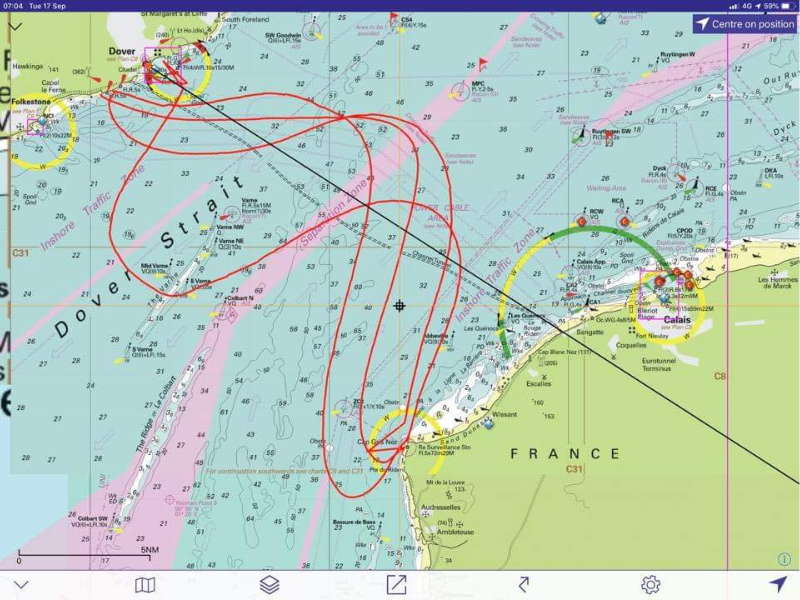
'Do you remember your first long distance swim, where you thought this is something I would want to pursue, or I could swim much further?'
Sarah: _"Sure, I was a competitive swimmer. Through high school, and college, and all of that. I have a pretty strong pool background. In the pool, the farthest you go is the mile. After school, I moved out to Denver, where I live now. I joined a Master's team, and people on my Master's team were like: "Sarah, you would be so good at open water, you have to sign up for this 10K race that we do here." And I was like: "A 10K? That's really far, like, to actually swim the whole six miles. That's actually probably impossible, I'm pretty sure." But they convinced me to do it, and so it was in 2007, I did my first 10K, and I was like, hooked."
‘I was like: "A 10K? That's really far, like, to actually swim the whole six miles. That's actually probably impossible..."’
_"I was like "holy cow" I should have been doing this my whole life. Why did I miss out on this? This is the most fun I've ever had. And obviously from that very first swim, things just escalated from there, because that was in 2007. Then I did that a couple of times, and I did the Catalina channel in 2010. And so, there we are.
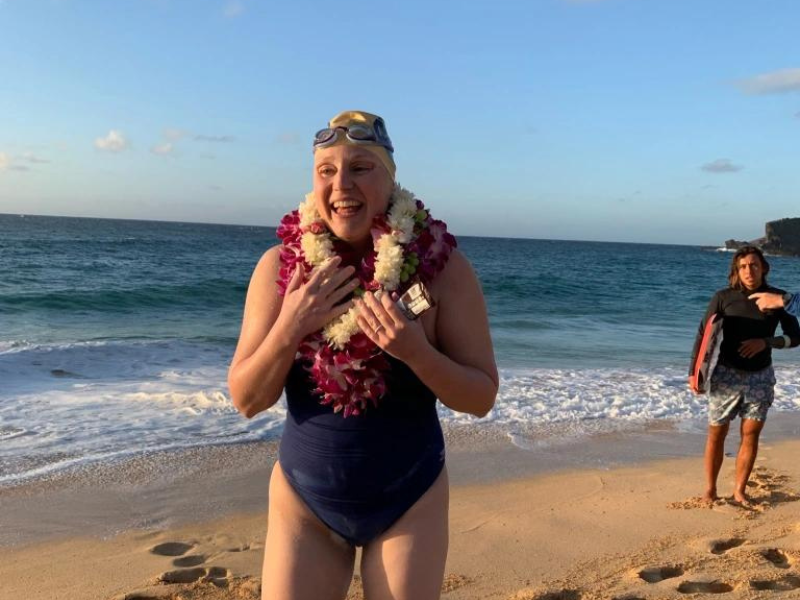
'Could you tell us a little about your involvement with Swim Across America, and the fundraising you do with them as well?'
"So, in 2017, right after Lake Champlain, I was diagnosed with breast cancer. And so, kind of going through all my treatments, and all the really great things that come with a cancer diagnosis. I am obviously, really passionate about cancer research, and doing things that support cancer survivors, cancer patients, doctors, nurses - pretty much anyone within that realm of oncology and cancer. Swim Across America hosted our very first event in Denver in 2018. It was literally two days after I had finished radiation treatment."
'Swim Across America hosted our very first event in Denver in 2018. It was literally two days after I had finished radiation treatment.'
"I wasn't super-duper familiar with Swim Across America at that time, but one of my swim buddies made a team and made me team captain. A bunch of my friends swam in my honour. I had full intentions to go, but I was too sick. Like, I woke up that morning, two days out of radiation treatment, and I didn't think it was a good idea for me to participate this year. But pretty much every year since then, I have fundraised for Swim Across America here in Denver. Last year, I did kind of my own personal swim in Lake Mead, and we raised nearly $10,000 for Swim Across America."
"So, I just think it's a really incredible organization that does really good work in the cancer community. You know, just lots of good stuff going on with this particular group. So, it's really fun to be a part of them, and I feel like I'm part of their mission."
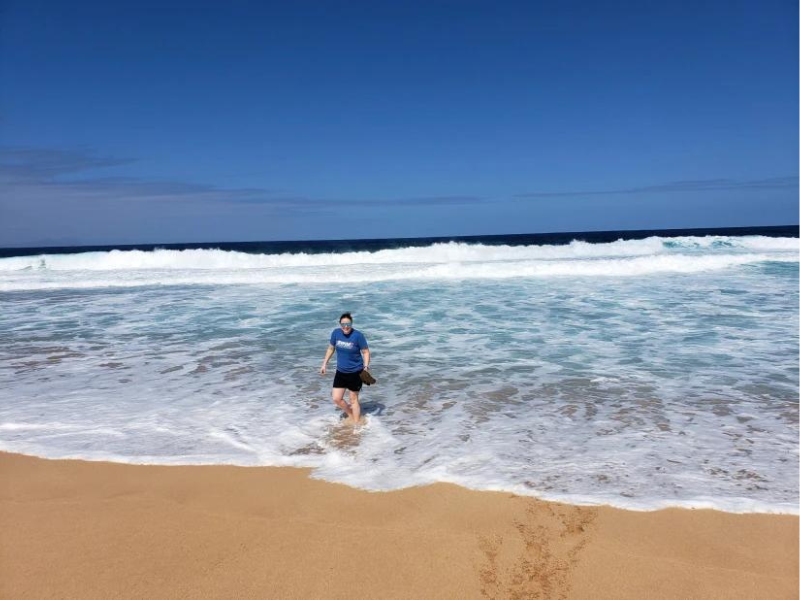
'Is there any advice you would give to aspiring long-distance swimmers on how to build mental endurance? I guess 10K is the first long-distance swim most people would do. Anyone kind of looking towards doing a 10K, is there any advice you would give them if they're nervous?'
Sarah: "Yeah, I feel like any of it is just a matter of starting. Start small at a level that you're comfortable with. So, you know kind of what feels really good, and then try to push your limits. I feel like there's always opportunities for personal growth when you're just testing yourself a little bit. And I think a lot of people find some good proving grounds in a 10K, because that's several hours without stopping. I feel like it can be super intimidating when you're starting off. I mean, I was a lifelong distance pool swimmer, and I was still terrified of a 10K my first time."
‘I was a lifelong distance pool swimmer, and I was still terrified of a 10K my first time.’
"If you work out a training plan, get support from other local open water swimmers, and just prepare the best you can, then go for it, you never know what you might find at the other end."
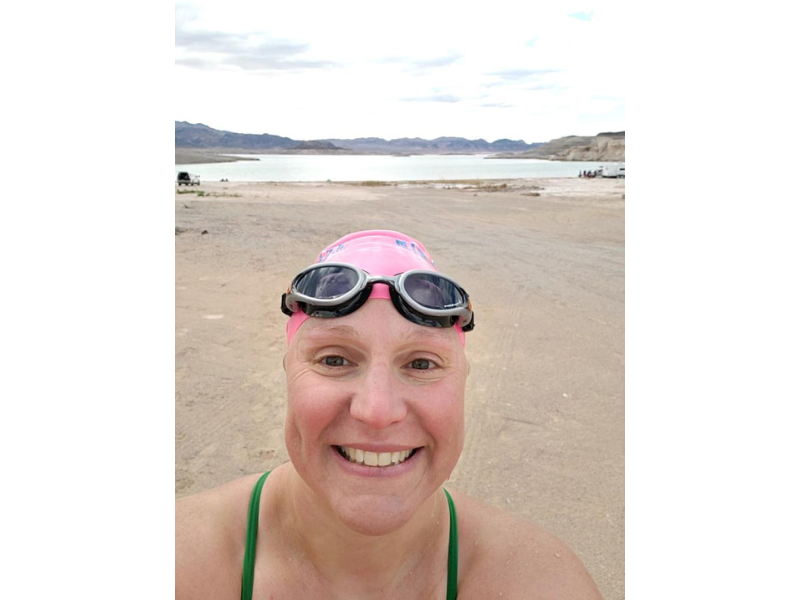
'Do you remember the transition from the pool to open water, or were you just always swimming in lakes?'
Sarah: "I've always been comfortable in the lakes. I will say, when I did Catalina, that was the first time I'd spent an extended amount of time in the ocean. And so that was super-duper intimidating, because I'm like, I don't really know about the saltwater stuff. I grew up in the lake. And so, I will say that was probably a harder transition than going from like mostly pool swimming to 10K stuff."
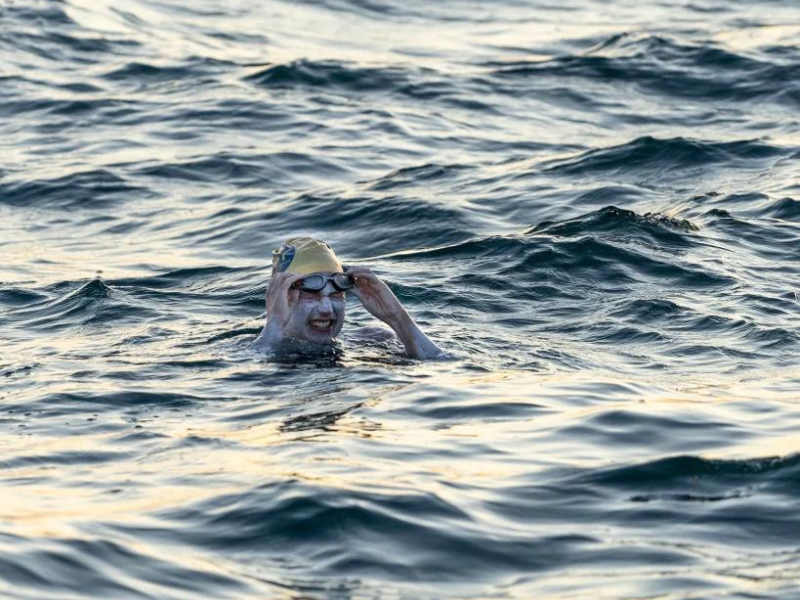
Support Sarah's Swims
You can support Sarah and the fight against cancer by:
- Donating in support of Sarah's mission. Funds raised by Sarah support clinical trials and cancer research through Swim Across America.
- Following and sharing Sarah's story on social media.
If you enjoyed this interview, please let us know in the comments section below. If you have any other questions, please don't hesitate to send them to us directly: marketing@swimtrek.com...



